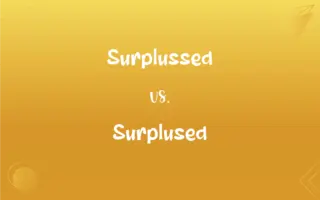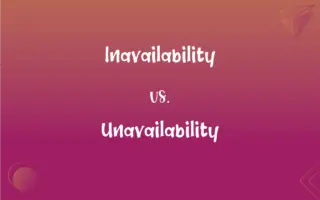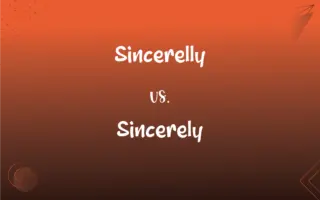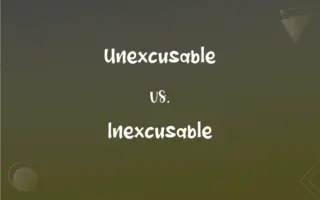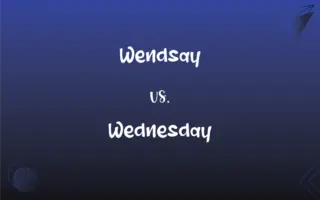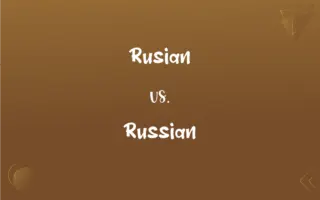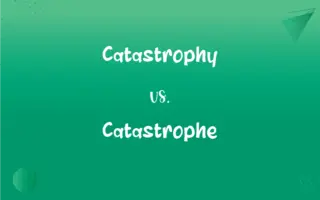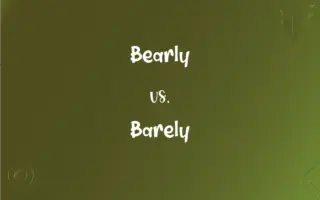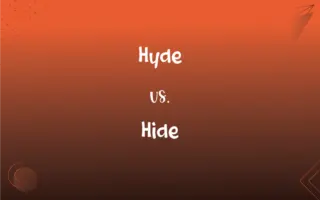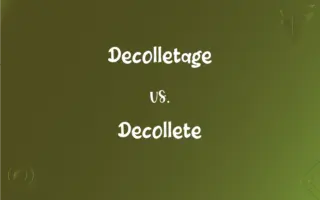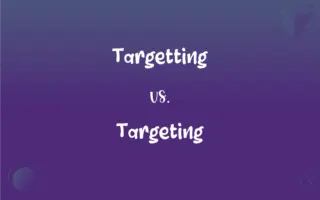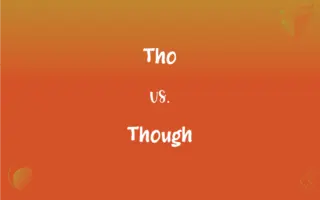Whome vs. Whom: Mastering the Correct Spelling
Edited by Aimie Carlson || By Janet White || Updated on March 12, 2024
"Whome" is incorrect. The correct spelling is "whom," which is an objective pronoun, typically used to refer to people.

Which is correct: Whome or Whom
How to spell Whom?

Whome is Incorrect

Whom is Correct
ADVERTISEMENT
Key Differences
Think of “To whom it may concern” to recall the correct usage.
Associate "whom" with formal writing or speech to keep its spelling concise.
“Whome” sounds like “home” but when referring to people, always drop the “e.”
Visualize "whome" and erase the "e" to remember "whom."
Remember "who" is the subject and "whom" is the object, with no extra "e."
ADVERTISEMENT
Correct usage of Whom
I don't know whome to ask for help.
I don't know whom to ask for help.
Whom should leave the door open?
To whome it may concern.
To whom it may concern.
She's the one whome we trust.
She's the one whom we trust.
You can give it to whomever you like.
You can give it to whom you like.
Whom Definitions
Whom represents the person affected by the action.
Whom are you discussing?
Whom is often used in formal or written language.
The man with whom she traveled was her cousin.
Whom is used to refer to the object of a verb or preposition.
To whom did you give the letter?
Whom is the objective case of "who."
Whom have they selected for the role?
Whom is used in questions about people.
Whom did you see at the event?
(interrogative) What person or people; which person or people.
As the object of a verb.
Whom did you ask?
As the object of a preposition.
To whom are you referring?
With whom were you talking?
(relative) Used to refer to a previously mentioned person or people.
That is the woman whom I spoke to earlier. (defining)
Mr Smith, whom we all know well, will be giving the speech. (non-defining)
He's a person with whom I work. (defining)
We have ten employees, half of whom are carpenters. (non-defining)
The person(s) whom; whomever.
To whom it may concern, all business of John Smith Ltd. has now been transferred to Floggitt & Runne.
The objective case of who. See Who.
And every grass that groweth upon rootShe shall eke know, and whom it will do boot.
Whom Sentences
The teacher, whom everyone respects, is retiring.
To whom did you give the book?
The artist, whom she admires, is coming to town.
Whom are you going to invite to the party?
She knows to whom she should turn in a crisis.
The man, whom she thought she knew, turned out to be a stranger.
For whom are these beautiful flowers?
Whom did they elect as their leader?
Whom have you decided to nominate for the award?
He's not sure for whom the bell tolls.
The committee, whom you'll meet tomorrow, is very welcoming.
Whom will you ask to lead the project?
Whom do you consider your best friend?
She wondered to whom she could turn for advice.
Whom did you call after the accident?
The player, whom fans adore, scored the winning goal.
To whom do these ancient artifacts belong?
Ask not for whom the dog barks; it barks for thee.
Whom do you think will win the match?
Whom did you see at the concert?
To whom should I address the letter?
To whom does this mystery belong?
Whom will they blame for the mistake?
He couldn't remember whom he had seen.
The delegates, whom we met yesterday, were very polite.
Whom Idioms & Phrases
For whom the bell tolls
Indicates that the problems of one person affect everyone; from John Donne's meditation.
When tragedy strikes, remember for whom the bell tolls; we are all part of mankind.
Of whom much is given, much is expected
Suggests that those with a lot of resources or talents have a responsibility to contribute.
He always felt that, as someone of privilege, of whom much is given, much is expected.
Ask not for whom the bell tolls
A reminder that one should be concerned with the welfare of others; from John Donne's meditation.
When he heard the funeral bell, he remembered, ask not for whom the bell tolls.
To whom much is given, from him much will be required
Implies a responsibility to give back when you have been blessed with abundance.
The philanthropist lived by the principle that to whom much is given, from him much will be required.
To whom the gods wish to destroy, they first make mad
Suggests that destruction often precedes from one's own foolishness or hubris.
Watching the CEO's reckless decisions, the board murmured, To whom the gods wish to destroy, they first make mad.
Whom the gods love die young
Suggesting that those who are good or beautiful tend to die young.
Reflecting on the artist's early death, her friend remarked, Whom the gods love die young.
To whom it may concern
Used to address correspondence to an unknown party.
She started her letter with To whom it may concern, as she didn't know the recipient.
He knows not for whom he works
Used to describe someone who is unaware of the ultimate beneficiary of their efforts.
Feeling disconnected from the company's goals, he often felt he knows not for whom he works.
Whom fortune wishes to destroy, she first makes mad
A variation of the idea that ruin is preceded by folly.
As the empire fell, historians noted, whom fortune wishes to destroy, she first makes mad.
For whom the bell tolls, it tolls for thee
A reminder of one's mortality and connection to humanity; from John Donne's meditation.
At the memorial service, the speaker concluded with, For whom the bell tolls, it tolls for thee.
FAQs
What is the verb form of Whom?
"Whom" is a pronoun; it doesn't have a verb form.
Why is it called Whom?
"Whom" is derived from Old English and serves as the objective form of "who."
What is the pronunciation of Whom?
It's pronounced as /huːm/ or /ʰwʊm/.
Which vowel is used before Whom?
Any vowel can precede it depending on the context, but "to" is a common word before "whom."
What is the singular form of Whom?
"Whom" does not have a singular or plural form; it remains "whom."
What is the plural form of Whom?
"Whom" remains consistent in both singular and plural references.
Which conjunction is used with Whom?
No specific conjunction is exclusively used with "whom."
Is Whom a noun or adjective?
"Whom" is a pronoun.
Is Whom an adverb?
No, "whom" is not an adverb.
Is Whom a negative or positive word?
"Whom" is neutral; it's neither negative nor positive.
What is the root word of Whom?
The root is "who."
Is Whom a vowel or consonant?
"Whom" is a word and contains both vowels and consonants.
Is Whom a countable noun?
"Whom" is not a noun.
Is the Whom term a metaphor?
No, "whom" is not a metaphor.
Which preposition is used with Whom?
"With," "to," "for," and "by" are commonly used prepositions with "whom."
Which article is used with Whom?
Typically, no article is used directly before "whom."
Is Whom a collective noun?
No, "whom" is not a collective noun.
Is the word Whom imperative?
No, "whom" is not imperative.
How many syllables are in Whom?
"Whom" has one syllable.
Which determiner is used with Whom?
Determiners aren't typically used directly before "whom."
What is the third form of Whom?
"Whom" is a pronoun and doesn't have verb forms.
What is a stressed syllable in Whom?
The entire word "whom" is stressed as it's a single syllable.
What part of speech is Whom?
"Whom" is a pronoun.
What is another term for Whom?
A related word might be "him" or "her" depending on the context.
What is the second form of Whom?
"Whom" is a pronoun and doesn't have verb forms.
Is Whom an abstract noun?
No, "whom" is a pronoun.
How do we divide Whom into syllables?
"Whom" is one syllable and isn't divided.
How is Whom used in a sentence?
"I don't know whom she was referring to."
What is the opposite of Whom?
"Whom" doesn't have a direct opposite, but "who" is its subjective counterpart.
What is the first form of Whom?
"Whom" is a pronoun and doesn't have verb forms.
About Author
Written by
Janet WhiteJanet White has been an esteemed writer and blogger for Difference Wiki. Holding a Master's degree in Science and Medical Journalism from the prestigious Boston University, she has consistently demonstrated her expertise and passion for her field. When she's not immersed in her work, Janet relishes her time exercising, delving into a good book, and cherishing moments with friends and family.
Edited by
Aimie CarlsonAimie Carlson, holding a master's degree in English literature, is a fervent English language enthusiast. She lends her writing talents to Difference Wiki, a prominent website that specializes in comparisons, offering readers insightful analyses that both captivate and inform.



